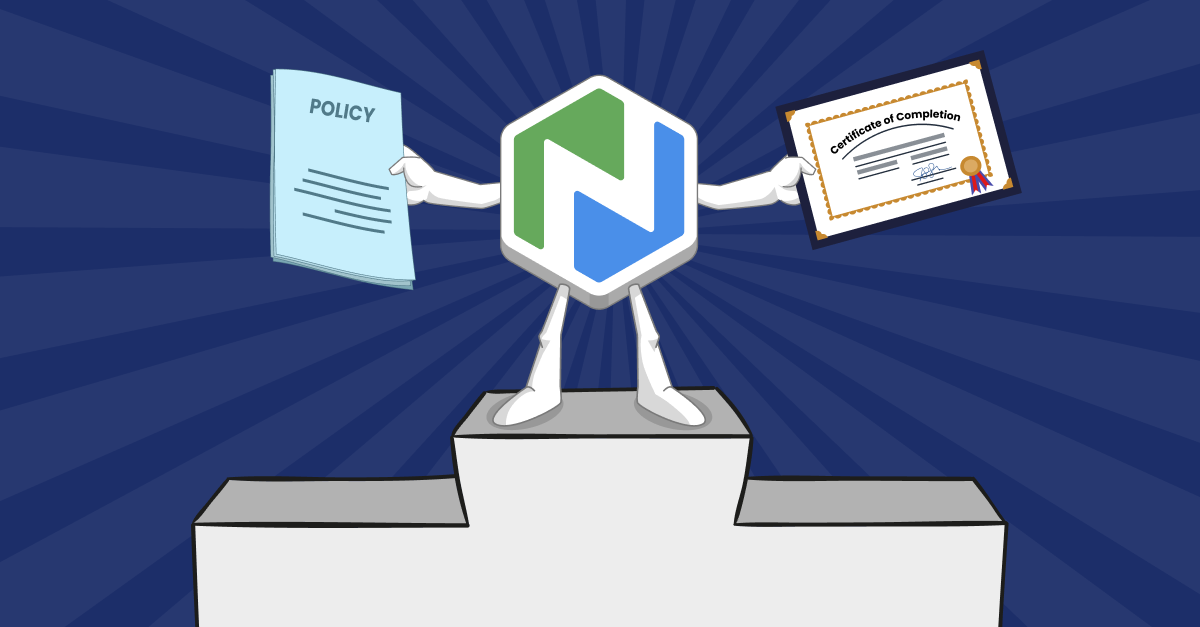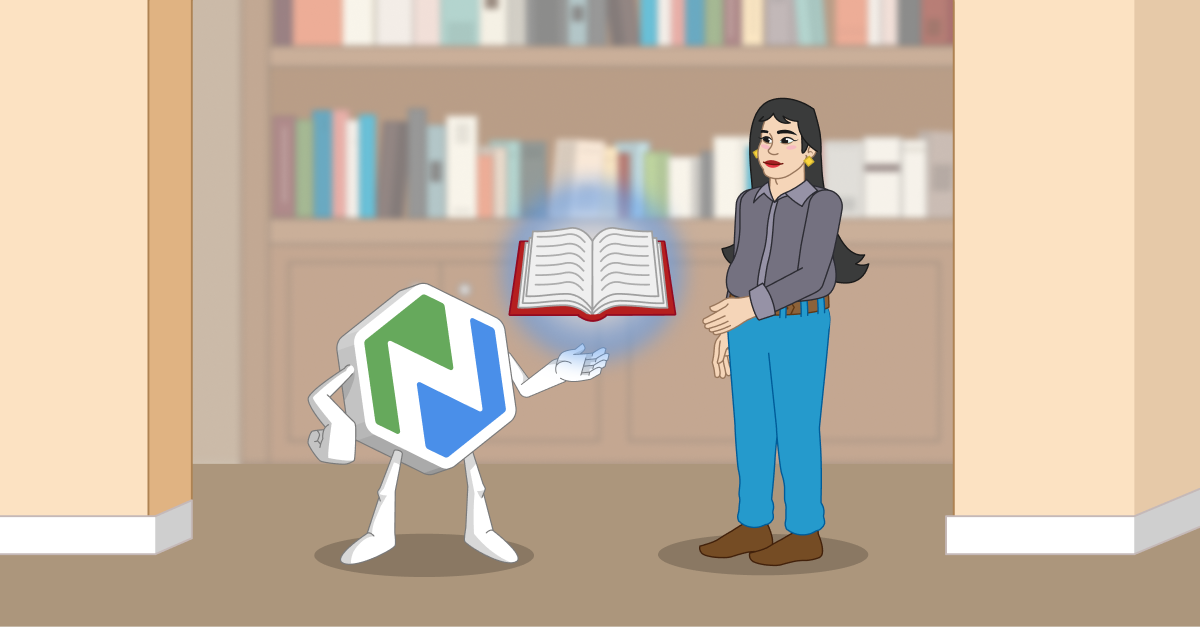How To Train Library Staff When There's No Time
Discover ways to overcome common training challenges and learn how Niche Academy can help you create a consistent culture of learning.

I remember helping people set up an email address back in my library days. I recall the frustration patrons felt when they struggled with technology, the patience it took to help them, and the sheer amount of time something “simple” could take.
Like many libraries, yours probably circulates e-resources or streaming material. Staff may run clubs, workshops, and other programs on topics like “how to use a mouse” or “how to code”. And, like me, frontline workers have likely been asked to help someone set up their phone, change a password, or get an email address.
You’re probably also familiar with the challenges and limitations of offering material, programs, and services—not just for technology but for other topics, too. Time, money, space, and training are perpetual problems.
The Public Library Association’s 2023 Public Library Technology Survey Summary Report issued earlier this year highlights some of these tensions. One statistic that caught my eye was that 27% of respondents identified staff training as an issue in response to an open-ended question. Given the work we do here at Niche Academy, I thought I’d use this post to offer some solutions for training when it feels like there isn’t enough time to train.
Why Training Matters
Librarians know training matters. After all, over a quarter of respondents voluntarily addressed it in the Tech Survey Report. We know training is important because:
- Technology changes fast. As the report notes, “For staff to assist patrons and provide relevant programming, it’s important that they themselves receive training to stay up to date.” The speed at which new software and devices change means an almost constant learning and teaching process.
- Communities change fast. Communities are made up of many different people, which means training has to meet the needs of many different people. Patrons with disabilities, English Language Learners, and those experiencing homelessness are just a few of the communities that staff should be trained to serve.
- Turnover can be high. The survey report didn’t mention turnover, but if you’ve ever struggled to hire or keep staff, you know how important training is. Consistent and cohesive training gets staff up to speed so they can deliver the highest-quality services to the community.
Overall, training impacts libraries in two separate but connected ways. Public libraries regularly train patrons on various topics, some of them technological, some not. But to do that well, staff also have to be trained. In fact, the training staff receive to do their jobs directly affects the types of training they can offer the community. So, let’s look at some of the challenges identified in the survey.
Common Training Challenges
The Tech Survey Report identified five key challenges common to providing digital literacy assistance and training:
- Limited staff capacity
- Not enough funds and resources
- Difficulty reaching underserved populations
- Lack of staff expertise and training
- Technology and space barriers
Libraries have long worked with these challenges, and not just for delivering digital literacy services and programs. I’ve yet to meet a librarian who says they have enough time, space, staff, or money.
Our purpose at Niche Academy is to provide tools that inspire learning and drive team success. It’s one of the reasons I love working here. So, let’s examine how we can help address some of these challenges.
Dealing With Limited Staff Capacity
The Tech Survey Report notes that “not having enough staff or staff time restricts libraries’ ability to assist and train patrons.” Of course, the paradox of limited staff capacity is that the fewer staff your library has, the more they need to be trained.
It can be scary and overwhelming to pick up new skills, especially when you need to use them to work with the public—and when you have a million other things to do. That’s why it’s especially important that training is short, practical, and immediately applicable. Very few of us have the luxury of full- or even half-day training, especially when short-staffed. And how often have you attended a day-long training only to forget what you learned in the weeks after?
Online, asynchronous tutorials like those offered by Niche Academy let staff pick up the skills they need in small chunks. You can set up pathways that make the most sense for staff, like helping them build digital literacy skills. And staff can revisit the tutorials as often as needed to build knowledge and confidence. And, when you don’t have enough staff to meet patron needs, tutorials on topics like digital literacy or critical thinking can be offered directly to the public, allowing your community access to content you can trust.
Dealing With the Lack of Funds and Resources
The Tech Survey Report mentions lots of great sources for free training, including those by PLA, tech companies, and other organizations. At Niche Academy, our contribution to free continuing education comes through our webinar series, where experts from the field cover practical tools, tips, and techniques that staff can immediately use to make a difference in their communities.
Beyond that, our Marketplace offers access to hundreds of tutorials, including content created by us and other Niche Academy subscribers. You can borrow what you need or create training with our easy-to-use interface. And if creating tutorials seems like a heavy lift, you can add or subtract content from Marketplace tutorials with a few clicks, making them more relevant to your library and community.
We offer the Marketplace and authoring tools as part of your subscription, so you get everything in one platform. One way I recommend using these features is to build library programs around tutorials. Interested in helping patrons understand their digital footprint or how to create a strong password? Share the tutorials, facilitate a discussion, and schedule time for patrons to implement these skills in the library. Using the tutorials this way is especially helpful if you don’t have a budget for expert speakers.
Dealing With the Difficulty of Reaching Underserved Populations
Respondents to the Tech Survey Report noted that it can be challenging to reach patrons “including non-English speakers, low-income individuals, patrons with disabilities, seniors, or rural residents” and that “disparities in access present a persistent challenge as libraries try to meet digital equity needs.”
You can’t solve this challenge with a good LMS—when access to devices or broadband is the issue, all the great content in the world won’t matter. But where internet access isn’t an issue, asynchronous online content can help you reach patrons who can’t make it into the building, offering the same excellent programs (including storytime!) and training you offer in-house. And everyone can learn at their own pace.
Dealing With the Lack of Staff Training and Expertise
Even if you have enough staff, the rate of change libraries experience demands continuous training. On the topic of technology alone, the Tech Survey Report notes that lack of training and expertise “can hinder libraries’ ability to offer technology programs and services to meet patron needs. Rapid advancements in areas like AI can make it challenging to keep up and provide up-to-date programs and assistance.”
Training can be informal, but it doesn’t have to be haphazard; even small amounts can increase staff confidence. Online, asynchronous training lets staff take tutorials when shifts are slow and practice in a low-stakes environment so they feel confident applying what they learn. Over time, they will be better able to find learning resources quickly and efficiently, whether that’s how to avoid an online scam or how to use an e-resource.
And, just like building patron programs using asynchronous online tutorials, you can do the same for staff. Assigning short tutorials or content pathways and then following up with an in-person discussion during staff meetings can accomplish a lot without much extra time or overhead.
Dealing With Technology and Space Barriers
According to the Tech Survey Report, persistent challenges “include outdated equipment, old buildings, and limited internet connectivity.” Again, while a good LMS can’t solve all of these problems, it should be mobile responsive and usable on a desktop, tablet, or smartphone.
So, as long as there’s an internet connection, asynchronous online training allows you to offer programs without needing additional space or fancy equipment.
From Training to Learning
For a training company, we spend a lot of time thinking about organizational culture. Instead of focusing strictly on training, we encourage people to think about creating a culture of learning. Especially when it comes to digital literacy and technology training, the Tech Survey Report advises that “It may be more meaningful for libraries to foster a culture of learning around technology than to approach skills as a checklist.”
This mindset may be easier for libraries to adopt than those in other industries—after all, libraries create a culture of learning for patrons every day! So why not apply the same philosophy to staff training? Instead of trying to train everyone on every possible situation, set up a system where staff know where to find quality, consistent, condensed information to deal with issues as they arise.
Train Better, Today
At Niche Academy, we provide tools that inspire learning and drive team success. Our platform can address many common training challenges that cause you and your staff stress—allowing you to think less about training and more about creating a consistent culture of learning at your library.
If you’re already a Niche Academy subscriber, email us for more ideas based on your specific staff and community training needs.

.png)
.png)
.png)

.png)
.png)
.png)

.png)
.png)

.png)